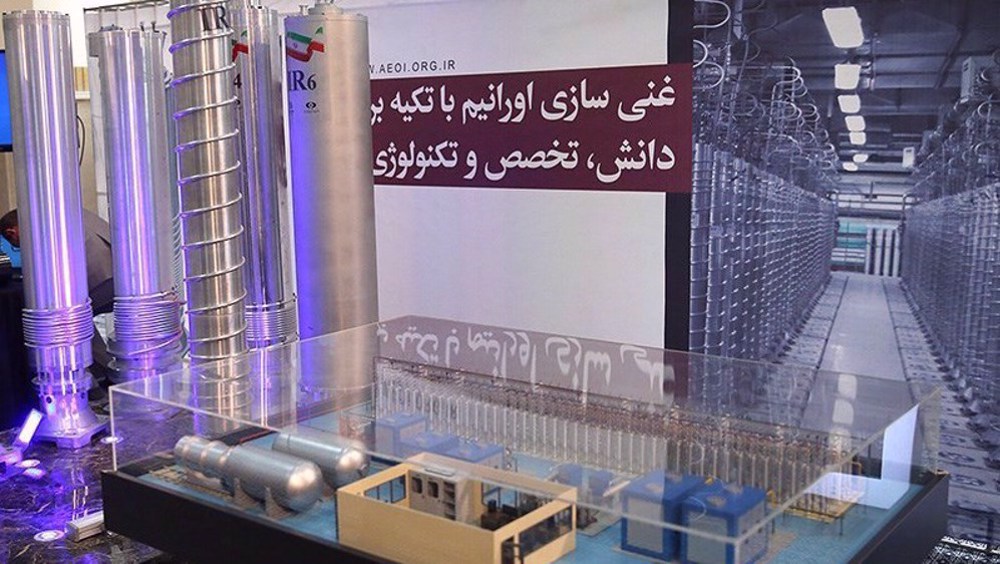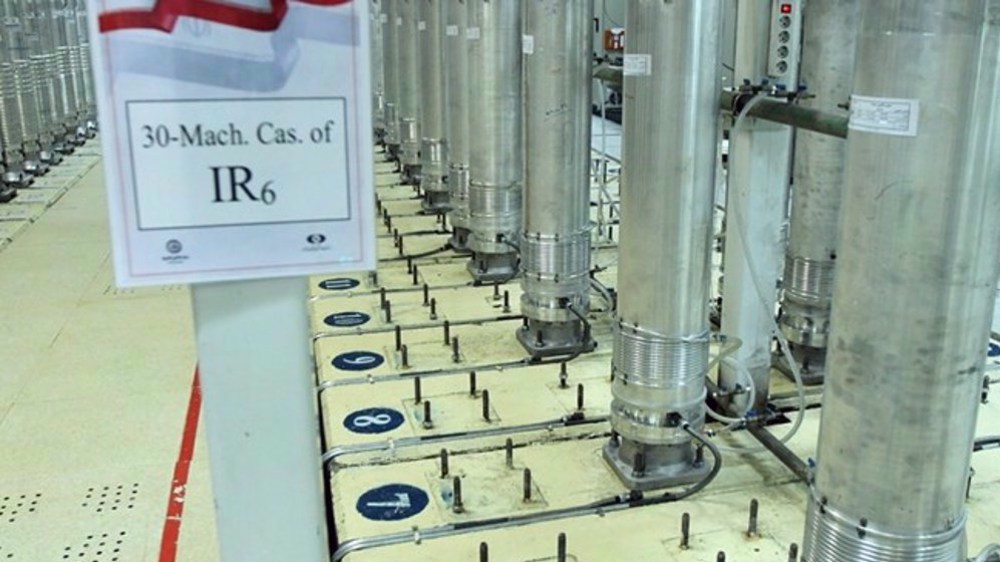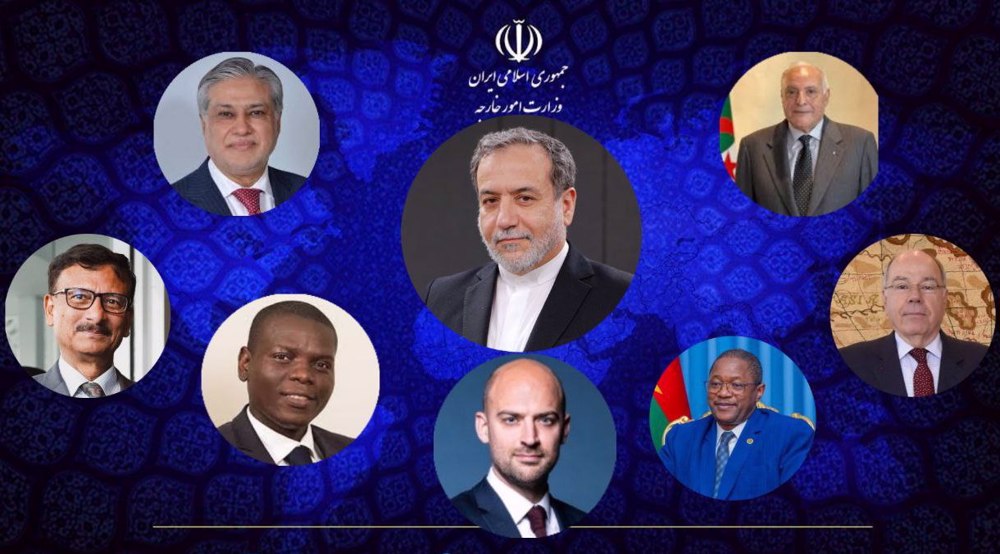Iran’s third JCPOA step reversible like previous ones: Zarif
Foreign Minister Mohammad Javad Zarif says the upcoming third phase of Iran’s nuclear countermeasures has been so devised to be reversible, as is the case with its previous nuclear responses, if Europe meets its nuclear commitments towards Tehran.
“Should they act on their obligations, this step, like the two previous steps, which have already been taken, could be reversed,” Zarif said on Thursday at the airport in the Indonesian capital of Jakarta, where he arrived as part of an Asian tour.
Iran's top diplomat added that “in the next several hours,” he will be notifying the European Union foreign policy chief, Federica Mogherini, of the third step, as announced by President Hassan Rouhani earlier, adding that the third phase is a “very important” one.
Iran began the countermeasures in May on the anniversary of the United States withdrawal from its historic 2015 nuclear agreement with major world powers. The deal was signed in Vienna in 2015 between the Islamic Republic and the P5+1 group of states comprising the US, the UK, France, China, and Russia plus Germany.
Officially known as the Joint Comprehensive Plan of Action (JCPOA), the agreement lifted nuclear-related sanctions on Tehran in return for some restrictions on the country’s nuclear energy program.
Iran set off the nuclear countermeasures to retaliate against the US withdrawal and its subsequent re-imposition of sanctions, but also to prompt the deal’s European sides to meet their commitments under the JCPOA to keep up their trade with Tehran despite Washington’s bans.
The retaliation has already seen the Islamic Republic surpassing the 3.67-percent enrichment cap set by the deal on its uranium enrichment activities.
France has taken the lead in a European effort to keep the JCPOA alive by guaranteeing Tehran’s business interests under the deal.
On Tuesday, French Foreign Minister Jean-Yves Le Drian said the push had come to focus on a possible guaranteed credit line for Tehran in exchange for oil.
He, however, noted, “There is still lots to work out, it’s still very fragile.”
Addressing the media on Wednesday, Brian Hook, the US special representative for Iran, said the United States would not provide any sanctions waivers to accommodate a French proposal to extend a $15 billion credit line to Iran.
‘Don’t await US permission’
Elsewhere in his remarks, Zarif said if, for cooperating with Iran, Europe is awaiting the permission of a country that has left the JCPOA to pile up pressure on Iran, “They should be sure that such permission will not be granted.”
He told Europe that by cooperating with Iran, the continent will not be giving Tehran any concessions or done it any favors. “You are [just] supposed to fulfill your commitments,” he stated.
“[Implementation of] these commitments does not hinge either on the United States or its permission,” Zarif asserted.
Performing the contractual duties, he noted, does not even entail ratification of any new laws by Europe, but it’s simply committing to laws, which are already in place, and realization of the desired ensuing results.
“Europeans have flouted their commitments, which have nothing to do with the US,” he concluded.
On Wednesday, President Rouhani said the country and Europe were unlikely to reach an agreement on ways to save the JCPOA by Thursday, and that Tehran would go ahead with its plan to announce the third step in scaling back its commitments under the accord.
“It is unlikely that we will reach a final agreement with Europe today or tomorrow; therefore, we will take the third step. We will release the details of the third step today or tomorrow and act accordingly,” Rouhani told a cabinet meeting on Wednesday.
The president described the third phase of Iran’s commitment reductions as “highly important in nature,” emphasizing that this would the “most significant step that we take” and would “have extraordinary effects.”
Hezbollah breaks record of anti-Israel ops; four million settlers run for their lives
Iran rejects involvement in murder of Israeli rabbi in UAE
‘Israel at dead end’: Army chief vows Iran’s lasting support for resistance
Hezbollah executes record 51 military operations against Israel in a single day
VIDEO | Intl. day to end anti-women violence: Female victims of Israeli attacks on Gaza, Lebanon remembered
Leader: Arrest warrant not enough, Netanyahu must be executed
VIDEO | Iraqi fighters conduct fresh retaliatory attacks on vital Israeli targets
Gaza hospital chief calls for help amid Israel’s ‘extermination campaign’















 This makes it easy to access the Press TV website
This makes it easy to access the Press TV website